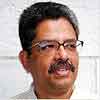Some years ago, when a friend who had just been invited to provide commentary for a cricket match broke the good news at the press club, a senior journalist told him: “At least now you won’t make spelling mistakes.” Had it been the reverse, and a commentator had been offered a slot as a columnist, well might he have been told, “At least now you won’t make terrible mistakes in pronunciation.”
According to the British Institute of Verbatim Reporters (BIVR), the body that records public utterances, the word most people find hardest to pronounce is ‘phenomenon’.
The second most difficult is ‘remuneration’. I suspect it is not the pronunciation so much as what the word represents – everyone wants greater remuneration, even those who struggle with the word, and you can imagine a boss saying, “No pay hike for you unless you can pronounce the word correctly”, thus knocking out about eighty percent of the applications.
Third on the list is ‘statistics’, again, I suspect for what it represents (bowling average, size of shirts, number of time you have asked for an increase in remuneration and been turned down).
The BIVR, obviously staffed by kind people, clearly did not speak to president George W Bush or they would have put the word ‘nuclear’ above all others.
Thanks to Bush, most of America think their country is ahead in the new cooler race, and wonder why the rest of the world is making such a fuss. Every time there is a fresh order for new coolers in the working place, the security forces shut down the office, take everybody’s telephone number and advise them not to leave town in case they are needed for later inquiries. Which is why so many people make do with old coolers there.
Which leads us (I don’t know how) to the novelist Philip Roth who has decided to hang up his word processor. He is 79, and it is time, he says, he began reading what he has written rather than writing some more and then discovering he has more books than years left in which to finish them. As any mathematically challenged person will tell you, I am half his age, but it is a thought that occurs to me at regular intervals (not that Roth must retire, but that I must before I discover what he has discovered).
It started from the moment I wrote my first essay, “How I Spent My Summer Vacation.” I was eight or nine, and summer came at the usual time, just after the annual school exams. How did summer know when my exams were I asked myself, and not getting an answer (for summer seldom spoke) moved on to other things.
That summer was a beautiful one, full of sunshine and warm smells and wonderful things to eat. Yet I could not enjoy any of it because of that darned essay I had to write. I decided to keep a diary. On the first day I wrote in it thus: I have decided to keep a diary to help me with the writing of my essay on how I spent the summer vacation. On day two I wrote: Today I checked the entry for yesterday. On day three I wrote: It is day three and I still have not written my essay. On day four it was: It is day four, and ditto.
“Go out and play, meet friends, take in a movie,” screamed my mother who felt I was wasting my time sitting indoors trying to write when I should be outdoors falling from trees or scraping my knees on the roads. But at least I had something to write in my diary: Today my mother screamed at me, “Go out and play, meet friends, take in a movie.”
And so it went on, a mobius strip of experiences, captured between the covers of a book, but no sign of the essay I was supposed to write.
Finally, on the last day of the vacation, I made up a story. Of how I had visited friends, gone out and played and taken in a movie and done all those fabulous things one usually does during a summer vacation. In a sense I had done it – in my imagination.
That’s when I decided to retire from writing. No more, I said. And I have been writing ever since. Mr Roth will probably have the same experience.


